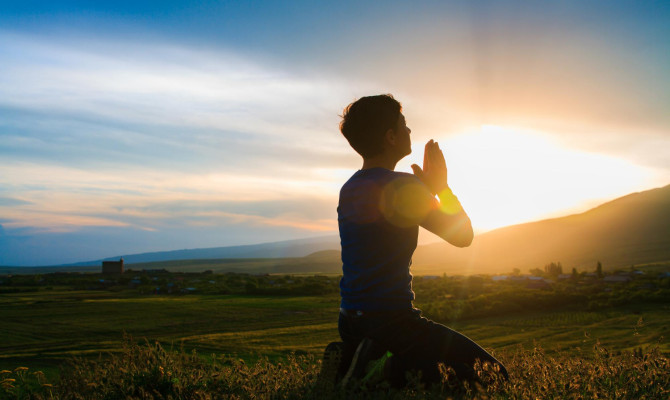Hiking and its Health benefits

- Hiking
- 17 Aug 2023
Overview
What is Hiking?
Hiking is an outdoor sport that entails walking or hiking along unpaved paths in beautiful, natural settings, such as mountains, forests, deserts, or coastal areas. People of various ages and physical levels can engage in this delightful activity. It allows people to appreciate the beauty of nature, discover various landscapes, and get involved in the environment.
This article will explore the many sides of hiking and its advantages for the body, mind, and social interaction.

Health Benefits

Health Benefits of Hiking
There are a variety of health benefits associated with hiking. Here are some of them listed:
- Promotes heart health
- Reduces bad cholesterol
- Strengthens bone and muscles
- Calms your mind
- Increases stamina
- Improves sleep quality
- Helps in controlling blood sugar
- Improves balance and coordination
Promotes heart health
- Hiking is a great cardiovascular workout since it gets your blood and heart pounding.
- Regular hiking promotes circulation, strengthens the heart’s muscles, lowers the risk of heart disease, and strengthens the heart’s ability to pump blood. It can help lower blood pressure, LDL cholesterol, or “bad” cholesterol, and raise HDL or “good” cholesterol.
Burns calories to reduce body weight.
- It has a high calorie-burning potential, aiding in weight management and fostering a healthy metabolism.
Enhances strength and stamina of the muscles
- The several muscular areas used during hiking, such as the legs, glutes, core, and upper body, result in increased strength and training.
Uphill challenges
- While hiking, ascending steep inclines works your leg muscles against resistance, improving lower body strength1Benefits| Researched based study from Nlm.nih.gov
Safe for skeletal and joint health
- Compared to high-impact workouts like running or leaping, it is a low-impact activity that is easier on your joints.
Strengthening the bones
- Hiking boosts bone density since it involves weight-bearing, lowering osteoporosis risk, and enhancing skeletal health.
Emotional and mental health, reducing tension
- Hiking in peaceful natural settings provides an escape from daily stress, encouraging relaxation and enhancing mental well-being. It may reduce depressive and anxious symptoms, improving the quality of life. Heart health and good mental health are closely related.
Mood enhancement
- Hiking causes the release of endorphins, or “feel-good” hormones, which elevate mood and reduce anxiety and depressive symptoms.2Benefits| Researched based study from Nlm.nih.gov
Cognitive benefits
- Hiking has been associated with increased creativity, memory, and cognitive function since it gets you outside and moving.
Being present and mindful
- It promotes mindfulness by letting you focus on the here and now, which promotes peace of mind and mental clarity.
Natural healing hug
- Hiking provides a break from the stress of daily life and a chance for mental rejuvenation.2Benefits| Researched based study from Nlm.nih.gov
Improved level of fitness, higher stamina
- Regular hiking gradually increases your stamina, enabling you to trek farther and more challenging trails.
Improved lung function
- Fresh air and regular cardiovascular exercise can gradually enhance lung capacity and function.
Overall fitness
- It is an extensive exercise that increases fitness standards by enhancing muscular endurance, flexibility, and stamina.
Sleep improvement
- Regular physical activity, such as hiking, has been shown to enhance sleep quality. It facilitates energy expenditure, lowers stress, and fosters a state of physical exhaustion that aids in better sleep.
Being exposed to daylight
- Since hiking frequently takes place outside, you are exposed to natural light. This aids in regulating the circadian rhythm, the body’s internal clock essential for fostering regular sleep and waking cycles1Benefits| Researched based study from Nlm.nih.gov
Diabetes management
- Hiking is an aerobic activity that can increase insulin sensitivity and make the body stronger at using insulin. Regular hiking can help manage diabetes overall and improve blood sugar control.
- Stress hormones harm insulin sensitivity and blood sugar levels. It can help with better sugar control by lowering tension5Tips| Researched based study from Nlm.nih.gov
Management of arthritis
- Compared to high-impact workouts like sprinting or leaping, hiking often has a lower impact on the joints. This qualifies it as a safe exercise for those with arthritis because it can increase joint flexibility and mobility without aggravating joint pain. The muscles that support the joints can be strengthened. As a result, improving stability and minimizing discomfort.1Benefits| Researched based study from Nlm.nih.gov
Balance improvement
- It often involves navigating diverse terrains and uneven surfaces, which demands stability and balance. People can increase proprioception (the body’s capacity to perceive its position and movement) and balance abilities by consistently practicing it on various terrains.
Strengthening the lower body and core
- It worked the hips, legs, and core muscles, which are crucial for preserving balance. These muscle groups can be strengthened to improve balance and overall stability.
Improves focus
- It promotes concentration; paying attention to your motions, terrain, and surroundings might help you gradually improve your coordination throughout a walk.1Benefits| Researched based study from Nlm.nih.gov
Calories burned
Hiking calories burned
The amount of calories burned varies depending on several variables, including the duration, intensity, and geography of the exercise, as well as personal characteristics like body weight and metabolism. Here are some rough calculations of the number of calories burned during hiking using an average weight of 160 pounds (72.5 kilograms).
- Moderate hiking burns roughly 350–400 calories per hour on flat ground.
- About 400–500 calories are burned each hour while hiking on slopes or other uneven terrain.
- Hiking or climbing hills vigorously burns about 500–600 calories per hour.
It’s important to remember that these are only rough averages and may change. About the factors listed above, the actual number of calories burned may be more or lower. Because everyone has a varied metabolism and degree of fitness, these estimations apply to some3Calories burned| Researched based study from Nlm.nih.gov
Tips
Hiking tips for beginners
Start with easy trails.
- Select beginner-friendly trails based on your expertise and degree of fitness. Before tackling more tough terrain, look for well-marked, shorter, more accessible navigation pathways.4Tips| Researched based study from Nlm.nih.gov
Plan and get ready
- Learn about requirements, potential hazards, and the trail’s length, difficulty, and elevation gain.
- Be aware of the weather and wear suitable clothing. Take extra clothing, rain gear, and sunscreen with you.
- Inform someone where you’re going, which trail you’ll follow, and when you expect to return from your walk.
Dress accordingly.
- Invest in tough hiking boots or shoes with adequate traction and ankle support. Before your walk, break them in to avoid blisters.
- Considering the weather, layer your clothing. To keep comfortable, pick fabrics that will drain away sweat and breathe. Remember your sunglasses and cap.
- Bring a convenient backpack to keep all of your essentials.
Pace yourself.
- Take frequent breaks for rest and pay attention to your body. During this time, drink some water.
- Start your walk at a relaxed pace, especially if you are new to exercise. As your fitness level rises, gradually increase your speed and distance.
Follow etiquette
- Carry the trash out, avoid harming plants or wildlife, and leave no trace.
Safety first
- Avoid getting lost and causing environmental damage by staying on the authorized trails.
- If you think you might come into contact with wildlife, research so you’ll be prepared.
- Be ready for immediate weather changes, especially if you live somewhere mountainous. During storms, seek cover and steer clear of exposed areas.4Tips| Researched based study from Nlm.nih.gov
Any feedback on this article?
 This Articles content was accurate
This Articles content was accurate Very Informative Article
Very Informative Article I have a question or a comment
I have a question or a comment
 This article contains inaccurate content
This article contains inaccurate content This article was not helpful
This article was not helpful I have a question or a comment
I have a question or a comment
We appreciate your helpful feedback!
Checkout our social pages
References
-
National Library of Medicine
Hiking | Benefits
-
National Library of Medicine
Is there evidence that walking groups have health benefits? A systematic review and meta-analysis | Benefits
-
National Library of Medicine
Energy balance during backpacking | Calories burned
-
National Library of Medicine
Basic Medical Advice for Travelers to High Altitudes | Tips
-
National Library of Medicine
Metabolic Effects of High Altitude Trekking in Patients With Type 2 Diabetes | Benefits





































